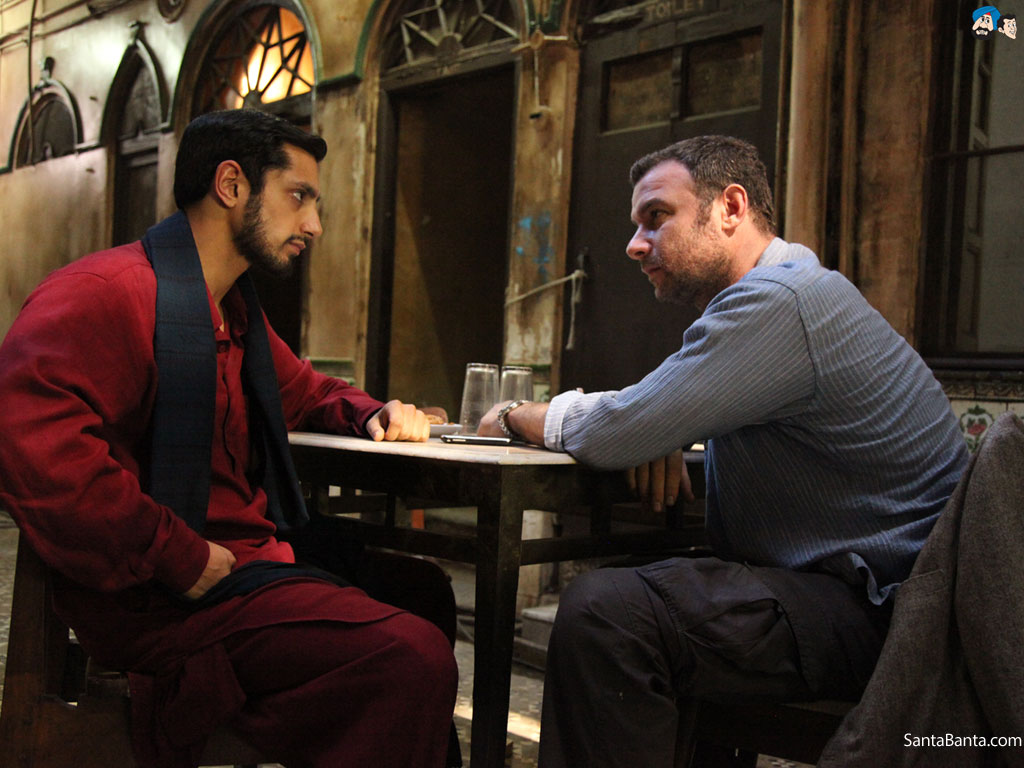At a key point in this political thriller a young woman, reflecting on the very recent terrorist attack on New York’s twin towers, asks her Pakistani boyfriend, “What could make them do such a thing?” Her Pakistani boyfriend replies in irritation, “How should I know?”
Essentially this movie is an exploration of this question, which I’m sure has rattled around in the heads of many North Americans for the last decade. The story is old largely from the P.O.V. of the Pakistani boyfriend Changez (hard ‘g’) played brilliantly by Riz Ahmed. .
Changez grows up in Pakistan in an educated family. His father is a well known, published poet. Like many young Pakistanis of his generation, the dream of going to America, where one can make anything of one’s life, looms large in Changez’s imagination. He wins a scholarship. He graduates from Princeton. Soon after, he is hired by one of Wall Street’s finest, played by Kiefer Sutherland who—to his credit—plays an uncharacteristically unsympathetic role in this movie
On Wall St. Changez’s sharp analytical skills are used to help companies “increase their value” which is largely code for firing large numbers of employees.
Changez is very good at his job; he is well on his way to being a poster child for the American dream. Then 9/11 happens. Suddenly it no longer matters that Changez is brilliant, or that he works on Wall St., or that he is married to the idea of unbridled capitalism as much as anyone. Returning from a business meeting, security guards at the airport pull him aside and strip-search him. Clients at work become hesitant to use his services. He is judged by his skin colour and facial features, not by his beliefs or actions.
Essentially this movie is an exploration of this question, which I’m sure has rattled around in the heads of many North Americans for the last decade. The story is old largely from the P.O.V. of the Pakistani boyfriend Changez (hard ‘g’) played brilliantly by Riz Ahmed. .
Changez grows up in Pakistan in an educated family. His father is a well known, published poet. Like many young Pakistanis of his generation, the dream of going to America, where one can make anything of one’s life, looms large in Changez’s imagination. He wins a scholarship. He graduates from Princeton. Soon after, he is hired by one of Wall Street’s finest, played by Kiefer Sutherland who—to his credit—plays an uncharacteristically unsympathetic role in this movie
On Wall St. Changez’s sharp analytical skills are used to help companies “increase their value” which is largely code for firing large numbers of employees.
Changez is very good at his job; he is well on his way to being a poster child for the American dream. Then 9/11 happens. Suddenly it no longer matters that Changez is brilliant, or that he works on Wall St., or that he is married to the idea of unbridled capitalism as much as anyone. Returning from a business meeting, security guards at the airport pull him aside and strip-search him. Clients at work become hesitant to use his services. He is judged by his skin colour and facial features, not by his beliefs or actions.

Changez’s moral crisis comes to a head when he sent to Istanbul with the task of dismembering a centuries-old publishing company which has been losing money. Changez confesses to the publisher that his own father is a poet. The publisher, with sad, dark eyes, looks up and says to Changez, “You should be ashamed…”
Within twenty-four hours Changez quits his job and quits America. Back in Lahore, he begins teaching at a university and quickly (and quite unfairly) is painted as a dangerous radical, in some way implicated in a recent kidnapping of an American academic (who we finally learn is actually and intelligence agent.)
Besides the extraordinary acting of the movie’s principal, Liev Schreiber turns in a very convincing performance as Bobby, the man drafted by American intelligence to confront Changez. The close-ups of Schreiber and Ahmed discussing life-and-death issues in a Lahore tea shop are riveting.
Kudos to the movie’s director, Mira Nair. This is a very thoughtful script, dealing with big issues and told in a most engaging way. In part it is a plea for dialogue, civility, even love. “I am a lover of America,” our protagonist states; there is more than irony in this statement. And later when talking earnestly to the Schreiber character, he says, “Remember, looks can be deceiving. I ask only one thing of you, Bobby. First listen to my whole story.”
This movie is an American-Pakistan co-production. Bravo. Despite Rotten Tomatoes inexplicably low rating for this movie, I believe it is a must-see flick for anyone seeking a deeper understanding of the Muslim world, fundamentalism, and the West’s sometimes unwitting aggravation of international tensions. I hear the book is pretty good too!
http://en.wikipedia.org/wiki/The_Reluctant_Fundamentalist
movie trailer
http://youtu.be/xfC45oq_drU
Within twenty-four hours Changez quits his job and quits America. Back in Lahore, he begins teaching at a university and quickly (and quite unfairly) is painted as a dangerous radical, in some way implicated in a recent kidnapping of an American academic (who we finally learn is actually and intelligence agent.)
Besides the extraordinary acting of the movie’s principal, Liev Schreiber turns in a very convincing performance as Bobby, the man drafted by American intelligence to confront Changez. The close-ups of Schreiber and Ahmed discussing life-and-death issues in a Lahore tea shop are riveting.
Kudos to the movie’s director, Mira Nair. This is a very thoughtful script, dealing with big issues and told in a most engaging way. In part it is a plea for dialogue, civility, even love. “I am a lover of America,” our protagonist states; there is more than irony in this statement. And later when talking earnestly to the Schreiber character, he says, “Remember, looks can be deceiving. I ask only one thing of you, Bobby. First listen to my whole story.”
This movie is an American-Pakistan co-production. Bravo. Despite Rotten Tomatoes inexplicably low rating for this movie, I believe it is a must-see flick for anyone seeking a deeper understanding of the Muslim world, fundamentalism, and the West’s sometimes unwitting aggravation of international tensions. I hear the book is pretty good too!
http://en.wikipedia.org/wiki/The_Reluctant_Fundamentalist
movie trailer
http://youtu.be/xfC45oq_drU
review by Brain d'Eon, Lunatic Writer


